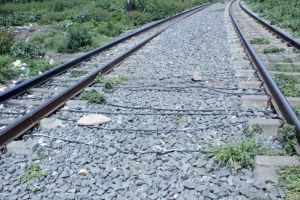Could Industrial IoT Help Combat the Costs of Illegal Power Connections?
Article Category:
Illegal connections are one of the leading causes of electricity-related injuries and deaths in South Africa, as reported by Eskom. Not only is there danger involved for those who connect their electricity illegally, but also for the rest of the community due to the fires and electrocutions that can be caused. Along with these devastating tolls, Dr Andrew Dickson, Engineering Executive at CBI-electric: low voltage notes that there are also costs to the power utility and the municipalities it serves which, in turn, impair their ability to provide service delivery and repay debts. However, leveraging Industrial Internet of Things (IIoT) solutions could aid in mitigating these.
Illegal power connections are syphoning off 37GWh of electricity per day from Eskom, costing the power utility around R15 million daily. While regular audits are conducted to identify and dismantle these connections, the situation is worsening. Power theft, including illegal connections, now accounts for 70% of Eskom’s total energy losses – up from 30% in 2022.
In addition, the network and infrastructure are under strain as new connections are made due to urbanisation. These two factors result in technicians being required to create new connections, remove illegal connections and, in many cases, restore power due to failed infrastructure. This is over and above the normal operational maintenance and restoration processes which ultimately impacts service delivery. It also prevents funds and resources from improving and upgrading the existing systems, thereby keeping the country stuck in a legacy environment, unable to develop and move forward.
Tackling illegal connections forms part of Eskom’s funding application for the 2023/24 and 2024/25 financial years, with data analytics to detect and resolve incidents being one of the strategies put forward by the power utility. This could be achieved through the roll-out of industrial IoT solutions which are comprised of internet-connected devices and advanced analytics platforms that process the data that is produced.
The real time data collection and processing capabilities offered by these solutions, coupled with the granular data they churn out, give power utilities and municipalities greater visibility and control over the consumed electricity. This can be used to distil what electricity is being consumed illegally and where - equipping them with actionable, on-the-ground insights into what is happening within the distribution network. At the same time, the technology enables them to audit and better understand their systems. Not only could this help prevent energy and financial losses but could ultimately save lives.
Beyond mitigating the consequences of illegal connections, IIoT could have broader-reaching economic and environmental benefits for Eskom and municipalities. This could include remote asset monitoring and maintenance to improve the reliability of power transmission and distribution, optimising the distribution of power supply to reduce losses in the system and redistributing excess energy generated by rooftop solar panels or wind plants to the grid, amongst other possibilities.
We find ourselves in a catch-22 situation: if the problem of illegal connections persists, we will never achieve universal electricity access for all and financial strain on the fiscus will continue. While not a cure-all, IIoT solutions could help to enable a smarter, safer, and more sustainable energy future for South Africa.
Follow us on Facebook, Instagram, LinkedIn, X, Threads or Twitter






